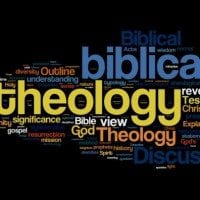 This word, dispensation, is a biblical word. It is found in the King James Version in several places. It comes from a Greek word, oikonomia, from which we get, in English, “economy.” In the Revised Standard Version it is usually translated stewardship or, in some places, plan. It appears in Ephesians 1:10 where the Apostle Paul speaks of “a plan for the fulness of time.” In Ephesians 3:9, Paul speaks of a dispensation or stewardship which was committed to him, which he calls, in the RSV, “the plan of the mystery hidden for ages in God who created all things.” This is the word we are dealing with. Literally, it really means “the law of the house” —oikos is house andnomus is law; sooikonomus is “the law of the house.” It has to do with order and regulation within a household.
This word, dispensation, is a biblical word. It is found in the King James Version in several places. It comes from a Greek word, oikonomia, from which we get, in English, “economy.” In the Revised Standard Version it is usually translated stewardship or, in some places, plan. It appears in Ephesians 1:10 where the Apostle Paul speaks of “a plan for the fulness of time.” In Ephesians 3:9, Paul speaks of a dispensation or stewardship which was committed to him, which he calls, in the RSV, “the plan of the mystery hidden for ages in God who created all things.” This is the word we are dealing with. Literally, it really means “the law of the house” —oikos is house andnomus is law; sooikonomus is “the law of the house.” It has to do with order and regulation within a household.
What is Dispensationalism?
By Ray C Stedman
Download Now in New Window Here Audio on Ray Stedman’s site
In this series of studies, we are taking up a few subjects which need further explanation and amplification. They center around great themes which run through the Scriptures. Therefore these studies are not the exposition of any one Scripture passage but are an attempt to gather up various passages and teachings in one connected theme. In our last study, we looked together at the knotty problem of legalism, and at how it pervades the whole Christian church. Now we want to take a problem of a somewhat different nature — the teaching of Scripture about the dispensations, the on-working program of God as it unfolds through the course of history.
Perhaps I can best introduce this to you with a personal word. I grew up as a young Christian at a time when the great dispensational Bible teachers were household names in America — men like William R. Newell, whose books on Romans and Hebrews were a great help to me as a young Christian; Dr. A. C. Gaebelein, who was an immigrant from Germany and became a marvelous prophetic teacher and conference speaker in the 20’s and 30’s of this century; and Dr. James M. Grey, who was the successor of Dr. Reuben Torrey, the founder of the Bible Institute of Los Angeles. Dr. Grey also became president of Moody Bible Institute and was a great Bible teacher. And then, of course, that prince of expositors and dispensational preachers, Dr. H. A. Ironside, who was for many years the pastor of the Moody Bible Church in Chicago, and who was in some sense my patron saint, since I traveled with him during the last year of his life.
At that time, when I was just a young Christian, the Scofield Reference Bible was the hallmark of evangelical Christianity. You simply couldn’t be a Christian if you didn’t have a Scofield Bible tucked under your arm — at least that is the way it seemed. The Scofield Reference Bible was edited by Dr. C. I. Scofield, a lawyer who became converted to Christianity under the ministry of D. L. Moody. He studied many of the Plymouth Brethren writings and put together a tremendous set of very helpful reference notes that were issued as the Scofield Reference Bible. He became the great teacher of dispensationalism to a whole generation of people.
It was Dr. Scofield who provided the classic definition of a dispensation. In the first chapter of Genesis, he has a note which says,
A dispensation is a period of time during which man is tested in respect to his obedience to some specific revelation of the will of God.
He saw through the course of history seven periods of time in which God was doing different things with men. He called them:
(1) the “dispensation of innocence,” which covered the time before the fall when Adam and Eve were in the Garden, in fellowship with God;
(2) the “dispensation of conscience,” which followed the fall and extended to the time of Noah, when men lived according to their consciences;
(3) the “dispensation of human government,” which came in after the flood and went from Noah’s time until that of Abraham;
(4) the “dispensation of promise,” which began when Abraham was given various great promises of God by which men were to live, as Dr. Scofield saw it, until the time when Moses brought the Law.
(5) the “dispensation of law” ran on through many centuries until the coming of Jesus Christ, who introduced
(6) the “dispensation of grace” in which we all live, and which is yet to be followed by
(7) the “dispensation of the kingdom,” which many call “the millennium,” the thousand years of Christ’s rule on earth which is yet to come.
Those are the seven dispensations that many of you have been taught, and as I grew up understanding them.
I remember so well some of the slogans of dispensational teaching. One was, “Rightly dividing the word of truth,” borrowed from Second Timothy 2:15 (RSV) where Paul exhorts young Timothy, “Do your best to present yourself to God as one approved, a workman who has no need to be ashamed, rightly dividing the word of truth.” To the dispensational mind, that meant dividing up history according to these dispensational distinctions — “rightly dividing” it so that you have a clear understanding of the divisions of time.
I have since come to understand that this verse doesn’t refer to that. It is really talking about hermeneutical or interpretational principles. You are to handle the Word of God according to clear-cut laws of communication, and not go off on a tangent, on various doctrinal hobby horses, but to “plow a straight course” through the Word of God. That is literally what the phrase means.
The Great Parenthesis
Another of the phrases of that day was “The Great Parenthesis,” which had to do with prophecy. It took note of the fact that seemingly God has interrupted his program with the nation of Israel, that at the Cross this nation was scattered abroad across the face of the earth, and God introduced the church. The church age will run its course until the Great Tribulation, and then God will again deal with the people of Israel and wind up this age with a resurgence of the prominence of the nation of Israel. The period in between, then, is called “The Great Parenthesis,” the time when God is working with the church, as opposed to Israel. Now, there is a good deal of truth in some of these teachings, and these men of God were greatly used to help clarify our understanding of the Scriptures from these points of view.
Another of the slogans I heard frequently was, “All Scripture is for us but it is not about us.” This was an attempt to show people that certain parts of the Scriptures seemingly did not apply to the church, or Christians today, but were addressed only to the Jews. And there is some grain of truth running through this as well, which we need to understand. It certainly was pointing out a very important matter.
All of this, of course, found its final expression in the ministry and leadership of Dr. Lewis Sperry Chafer, who was the successor of Dr. Scofield at the great Scofield Memorial Church, in Dallas, Texas, and who founded, as most of you know, the Dallas Theological Seminary, of which I became a student in 1946.
It has been 22 years since I graduated from Dallas Theological Seminary, and people frequently ask me, “Are you still a Dispensationalist?” That is what I am trying to answer this morning. The answer, I think, is “Yes, but with modifications.” I want to explain those modifications to you if I can.
I no longer agree with Dr. Scofield’s definition, because he starts out, “A dispensation is a period of time…” Though a dispensation has some relationship to time, time is not the essential element. I want to explain that in a few moments. I much prefer the use of the biblical terms “age,” and “times and seasons.” These are biblical phrases which mark the way God works in the course of history. We have the “age of grace” — we are living in it today. Jesus, you remember, spoke of the “times and the seasons” to his disciples. He said they are in the Father’s power — the Father administers these various times and seasons in human history.
But you can’t study the Bible without realizing that undoubtedly there are time distinctions which must be recognized. God hasn’t always done everything with a man in the same way. There has been a progressive unfolding of truth across the course of history, and we must recognize the various steps God took in that process. All Bible students recognize this. Therefore, in some sense, all Bible students who take the Bible seriously are “Dispensationalists.”
You are, for instance. You don’t bring a goat or a sheep to church to offer as a sacrifice, which indicates that you are a Dispensationalist because you understand that those requirements have now passed away and God isn’t demanding this of men any longer. I doubt if you have a tree in your back yard which you feel forbidden to eat the fruit of. Yet Adam and Eve had such a tree. This marks a difference, a change of dispensations since that time. And we gather for church services on Sunday morning, instead of on Friday evening as the Old Testament saints did. This marks a recognition of God’s differing dealings with men — a change of dispensations.
How is a Dispensation used in The Bible?
This word, dispensation, is a biblical word. It is found in the King James Version in several places. It comes from a Greek word,oikonomia, from which we get, in English, “economy.” In the Revised Standard Version it is usually translated stewardship or, in some places, plan. It appears in Ephesians 1:10 where the Apostle Paul speaks of “a plan for the fullness of time.” In Ephesians 3:9, Paul speaks of a dispensation or stewardship which was committed to him, which he calls, in the RSV, “the plan of the mystery hidden for ages in God who created all things.” This is the word we are dealing with. Literally, it really means “the law of the house” —Oikos is house and nomus is law; sooikonomus is “the law of the house.” It has to do with order and regulation within a household.
House Law: A Way of Governing
You have your house-law and I have mine. Mine is different from yours, I presume, and to that degree, I live in a different dispensation in my house than you do in yours.
For a long time, we had neighbors next door to us who evidently had a very loose law of the house. Their yard was neglected, with trash lying all over it. The lawn was allowed to die out. The paint cracked and peeled off the house and the whole place looked shabby. We were sorry they had such loose ideas about housekeeping. But now some new neighbors have moved in, and their house-laws are much different. The yard has been planted to a beautiful green lawn, and the trees and shrubs are being trimmed. The house is being kept clean and in order. Regular hours are being observed, and the whole neighborhood is thankful for the change of dispensations which has come in.
In my opinion, a great deal of damage has been done to our understanding of the Scriptures by linking dispensations with time. There is a certain element present which links with time, but essentially a dispensation has nothing to do with a period of time, as such.
Let me illustrate: In John 1:17 you have a verse that Dispensationalists often use: John says, “the law was given by Moses, but grace and truth came by Jesus Christ,” (John 1:17 KJV). This has been construed to mean that a “dispensation of law” was introduced by Moses which covered the entire Old Testament period. And the people of the Old Testament lived primarily under the Law and tried to fulfill the Law. But, in the New Testament, Jesus changed all that, set aside the Law, and introduced grace and truth. And now it is by grace and truth that we live.
Confusion Over Time Periods
But that is very confusing because it ignores the fact that there were grace and truth running through the Old Testament. Right in the middle of the Law, and the struggles of the people of Israel to obey the Law was the provision by God — given to Moses on Mt. Sinai, as we have seen in our recent studies in the book of Leviticus — of grace and truth. The entire system of sacrifices was God’s gracious provision to enable people to escape from the thunderings and cursings of the Law. And it is a picture of the work of Jesus Christ. Therefore, grace and truth were as much available, and as much a part of the life of God’s people, in the Old Testament as they were in the New. They didn’t begin only when Jesus appeared in the flesh, as John 1:17 would sometimes be made to seem to teach. You see, it is the attempt to link them to time which is the confusing ingredient.
This verse is actually referring not to any periods of time but to the instruments through which Law, and grace and truth, came. Moses was merely a man. He was a servant in the household of God, as the book of Hebrews calls him, a man able to expound and explain the character of God as set forth in the Law. Moses was given that privilege. But Law will never redeem, will never save. Knowing what God is like, or what you should be like, will never help you because you can’t do it. So grace and truth came in, through Jesus Christ, the Son of God, the Redeemer — God at work among men. Only he could give grace and truth, but he gave them as much in the Old Testament as in the New. That is the point. So it isn’t two periods of time which are marked out in this verse. It is really a reference to the origination of these two great themes in the Scriptures.
Because of this confusion, many Dispensationalists have rejected, for instance, the Sermon on the Mount, the great passage in Matthew 5 through 7 in which our Lord Jesus taught such marvelous truths about the character and nature of the Christian life. Many Dispensationalists say, “No, this doesn’t belong to us. This belongs only to Israel. It is to be fulfilled in the kingdom.” Because that passage incorporates the Lord’s Prayer, many Dispensationalists refuse to pray the Lord’s Prayer. Yet this is the prayer Jesus taught his disciples to pray, and it has great value and meaning for Christians today. Some go even further and apply much of the Gospels to the kingdom age. Some reject water baptism as being inapplicable today. Or even the Lord’s Supper, they say, doesn’t belong to us but is only to be celebrated in the millennium yet to come. And some Dispensationalists set aside all the apostles except Paul. They say that Paul is the apostle to the church and that he is the only one we should read, that the rest were Jewish Apostles — James, and Peter, and John — and their words do not have any significance to us, but only to Hebrew Christians.
These distinctions have all been made, in my judgment, because of an attempt to link the idea of a dispensation with time. But it isn’t a time period. A dispensation represents a level of understanding of God’s truth. And it also has to do with the divinely chosen method by which that truth has been made known.
For instance, God did choose the sacrifices and the offerings and all these other pictures in the Old Testament as a way of teaching the truth. And, in Galatians, Paul says, “The law was our schoolmaster to bring us to Christ,” (Galatians 3:24a KJV). But this doesn’t mean that people had to wait for 1,200 years — the whole time from Moses to Christ — before they could come to Christ. No, the Law was teaching them something about Christ all during this time — through the sacrifices and the offerings. And they could come to Christ through those means. That is what Paul means. At first, they started out merely on the kindergarten level — looking at these pictures that God gave. Then they began to understand what the pictures meant, and so the level of their understanding rose higher and higher until it brought them to Christ, whom they saw as pictured by these offerings and sacrifices, and they trusted his work on their behalf, just as we do today. Thus they entered a new dispensation even back in the days of the Old Testament. I will say more about that in a moment, but I think it is an important distinction we need to observe.
Dispensation of Conscience
You see, it is possible to a single individual during the course of his life to pass through many dispensations. Take for instance a savage living in the jungle, who is an animist or a worshipper of idols or images. He is living, Dr. Scofield would say, in the “dispensation of conscience,” in which he is responsible only to his conscience for guidance. But then, let us say, some Jews come along, and they get acquainted with him and begin to teach him the Old Testament revelation of God through Judaism, the Law of Moses and the sacrifices, and he becomes a Jew. Well, now he has moved into what Dr. Scofield would call the “dispensation of the law.” He understands something of that further revelation. His understanding of God has been greatly increased, but it is still far short of what the New Testament sets forth — all this according to a Dispensationalist’s point of view. Finally, some Christians come along, and this savage is led to Christ, born again, is taught the New Testament. Now he has moved into the “dispensation of grace.” But he is the same man — just at various stages of understanding in his life — moving from one dispensation to another.
Dispensation Defined as A Schoolmaster
So a dispensation is not so much a period of time as it is a level of understanding, which increases gradually as men begin to grasp the truth that God has given. And it is this that Paul means is the process of a schoolmaster — starting you out at the kindergarten level with pictures about God, and moving you on until you see the real thing: an encounter with the person of Jesus Christ, the living God.
The last point of disagreement I have with the classic picture of Dispensationalism is its tendency to view individuals in the past as locked into a pattern of truth that they cannot rise above. That is, Dispensationalists often teach that the Old Testament saints did not understand and did not experience God in the same way that we do today, that they lived at a lower level of understanding and experience than we, and they couldn’t come up to ours because ours is based on a fuller and fresher revelation of truth.
But I would have to disagree strongly with that. As I read of the Old Testament men and women of God, I find that I really can’t improve very much on what they experienced of God. Take men like David, and Abraham, and Isaiah, and others. When David writes in the Psalms about how he felt in relation to God, I find myself merely echoing what he says. Nothing that I have experienced has ever gone beyond what David has known. He cries,
The Lord is my light and my salvation,
whom shall I fear?
The Lord is the strength of my life;
of whom shall I be afraid? (Psalms 27:1 RSV)
I can’t beat that. That is what the Lord is to me, but he is no more than that. He is the strength of my life, and I see no difference between that expression and that of the Apostle Paul when he says, “I can do all things through Christ who strengthens me,” (Philippians 4:13 KJV).
When you read Isaiah, you see beautiful descriptions of his understanding of the being, the wisdom, the knowledge, and the character of God, of his grace and his abiding presence. He writes to the people of Israel and says,
Even youths shall faint and be weary,
and the young men shall fall exhausted;
but they who wait for the Lord shall renew their strength,
they shall mount up with wings like eagles,
they shall run and not be weary,
they shall walk and not faint. (Isaiah 40:30-31 RSV)
I can’t beat that. These men may have begun at a lower level than we do. They may have learned it by a different process, but they grew by faith into an understanding of God.
Abraham The Father of the Faithful
Abraham is said to be the father of the faithful. That is, everyone who has ever exercised faith walks in the steps of Abraham. He doesn’t go beyond him. He simply follows him. He attains the same relationship with God that Abraham attained. And Abraham was called “the friend of God,” (James 2:23). He is set forth as the example of those who follow, so that we become children of Abraham, walking as Abraham walked — “children of Abraham, by faith in Jesus Christ,” (Galatians 3:26 KJV). Abraham was taught of God, and learned of God, and came to an understanding of God. And the promise that was given to Abraham is promised to us. Read what the book of Galatians has to say about this. Paul bases much of his argument on the fact that the promise of the indwelling Spirit, which was given to Abraham, and experienced by Abraham, is exactly what is given now to us who are Gentiles — not Jews at all — but called to follow according to the promise and grace of God.
So, you see, faith has a way of eclipsing time. Faith is a way of surmounting time and eliminating it if you like. When you live by faith in the Word of God, you are able, as the book of Hebrews puts it, to “taste the powers of the age to come,” (Hebrews 6:5). The age to come hasn’t come yet in history, but it can come in your experience. You can live in the millennium now, in your inner life. You can know the presence of God, live in the city of God, walk in the midst of the garden, with the river of life flowing through it and the tree of life on each side — in your experience, now, by faith — although it hasn’t yet come in history. Faith is that marvelous way by which the people of God in any age are able to enter into the truth of God.
King David & The Law Contrasted
You see this so marvelously in David, for instance. It is true that David was brought up under the Law and the sacrifices and offerings, and he brought his lambs and goats and calves and bulls and sheep like everyone else. But as he brought them, he was listening to what God was saying to them, learning what God meant by these symbols. And there came a time in David’s experience when he no longer felt it necessary to offer offerings — not that he quit entirely, any more than, for instance, we who understand the meaning of the Lord’s Supper no longer observe it. Of course, we do. Merely understanding what it is getting at doesn’t stop us from observing it. But in the 51st Psalm, after David has committed the terrible sins of murder and adultery and has covered them up but God finally has exposed them, David cries out for forgiveness and he thanks God for the washing and the cleansing of the Word in his life. Then he says, “Sacrifice and offering you do not desire, else I would bring it,” (Psalms 51:16). David understood what these things meant, and he had passed beyond the need actually to bring these things, for, he says, “The sacrifice acceptable to God is an obedient spirit and a contrite heart,” (Psalms 51:17). This is the sacrifice God wants.
And the Lord Jesus reminded the Pharisees on one occasion of an incident in David’s life when he and his armed men came into the tabernacle and took the showbread — the twelve loaves of bread expressly designed to be the priest’s food and limited only to the priests — and yet David and his men, who were not priests, ate the showbread (1 Samuel 21:6). And Jesus said to the Pharisees, “What do you make of that? You dispensational legalists what do you think of that?” (Matthew 12:1-4). Of course, Jesus understood that David had come to understand what the showbread meant and that he had passed then beyond the picture to the real thing. So, by faith, these men and women of old entered into all the truth of God that we do today.
The Church and Israel
Now, there is a difference between the church and the nation Israel, and here Dispensationalists make some proper distinctions. It is important to understand these distinctions because this is what gives us a grasp of what God is doing in history. If you don’t make these distinctions and understand what the biblical definition of a dispensation is, you will never understand what is going on in the world today, right now. You will get discouraged. You will be sure that it is all going to fall apart, that your life and the lives of others of your own day are wasted, that we are only waiting for a final event, and until we get there nothing counts very much. If that is your view of life, you have missed completely what the Scriptures are trying to impart by these means. For what the Bible tells us is that God today is at work behind the scenes of human events, building a new kind of humanity. The world is familiar with the old kind. There is only one man who has ever lived in all of history, really; it is Adam. The life of Adam has been spread across the pages of history, and it is always the same old story — rather depressing to read. This is why history can often be very boring and dull if you don’t understand this great fact, because it is merely a chronicle of the life of Adam, with its ups and downs, its inner wars, its fightings and tumults, its hating and bitterness, resentment and injustice.
But that is not the only man who is alive today. The Scriptures tell us that there is a new man, a new creation, the second Adam — Jesus Christ. God is building a new humanity in him. And this is going on behind the scenes of all that is taking place, and it involves all the heartache and struggle and tears and pressure of your life and mine. All that is part of the process. But in Romans 8, the Apostle Paul speaks of a day that is coming when God is going to lift the curtain, and the world will suddenly be startled and astonished to see what he has been building quietly behind the scenes all these centuries, when, as Paul calls it, “the day of manifestation of the sons of God” (Romans 8:19b KJV) occurs, and the curse is lifted and the curtain is raised and a new humanity appears. But it has been produced in all these times.
And like the first Adam, the second Adam is made of three parts — body, soul, and spirit. Part of it is physical, corporeal; part of it is inward, soulish and spiritual. This is where the church and the nation of Israel come in. The part of the new humanity which is physical and outward and external is represented by Israel, the nation redeemed and sanctified under its true Messiah, to be, at last, the visible expression of God’s life before the world. But there is an inward part as well, having to do with ideas and knowledge and wisdom and truth and beauty, and this is represented by the church. This is what we are learning now — how to understand the wisdom of God, and the amazing ways by which he operates, the paradoxes by which he brings things about which seem to be contradictory, but aren’t at all. This is our curriculum. This is what we are engaged in — being taught by the Spirit of God.
And then, at the heart of it all, tying it all together, throbbing through every member and every cell of that new and amazing humanity, is the Spirit which is God himself. God who is a Spirit — that threefold mystery of Being, who intends to manifest the fullness of his character and the greatness of his glory through man — God dwelling among his people — this is a new humanity which is being produced. And this is what God is after. This is what makes all the struggle and all the pain and all the heartache worthwhile because this is where it all is going to end. As Paul says in Chapter 3, Verses 8 and 9 of Ephesians,
To me, though I am the very least of all the saints, this grace was given, to preach to the Gentiles the unsearchable riches of Christ, and to make all men see what is the plan of the mystery hidden for ages in God who created all things; that through the church the manifold wisdom of God might now be made known to the principalities and powers in the heavenly places. (Ephesians 3:8-10 RSV)
What a calling! What a program! What a plan! This is what God is working out. And if you understand it, you will see that your place in it is a very important part. Your life relates to the great thing that God is doing in this day and age.
Prayer
Our Heavenly Father, thank you for the mystery of the ages, the mystery of your being, the mystery of the church, the mystery of Israel, the mystery of lawlessness which is at work in this day and age. Forgive us for our shallow views of history. Forgive us for our superficial approaches to the problems we wrestle with today. Help us to ground all that we do in the greatness of your unfolding plan, and to understand what part we play in this program. We ask it in Jesus’ name, Amen.
Copyright © 2010 by Ray Stedman Ministries — This material is the sole property of Ray Stedman Ministries. It may be copied for personal non-commercial use only in its entirety free of charge. All copies must contain this copyright notice and a hyperlink to www.RayStedman.org if the copy is posted on the Internet. Please direct any questions you may have to [email protected].
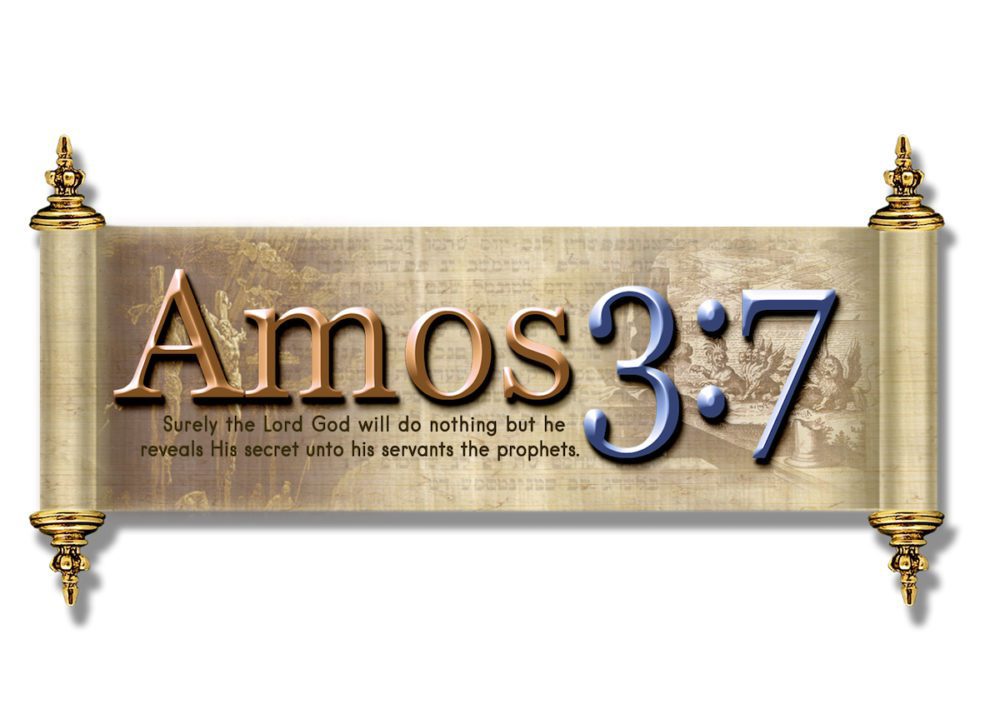


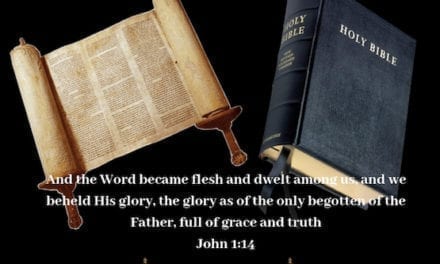
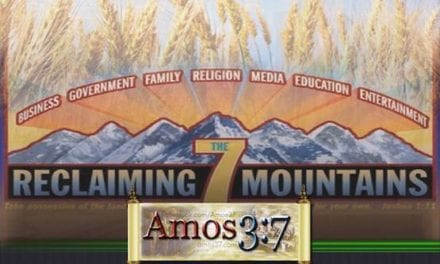
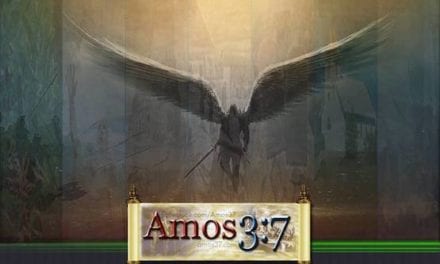












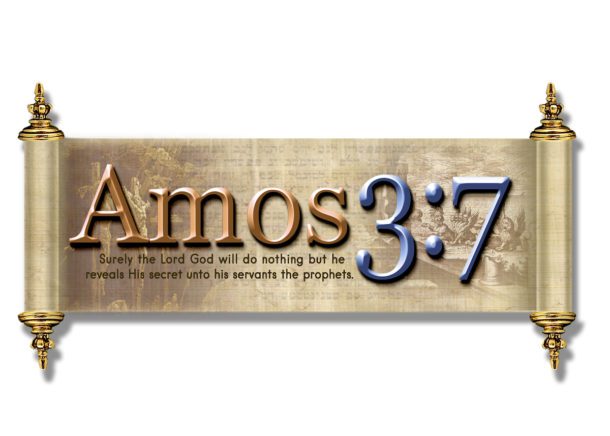
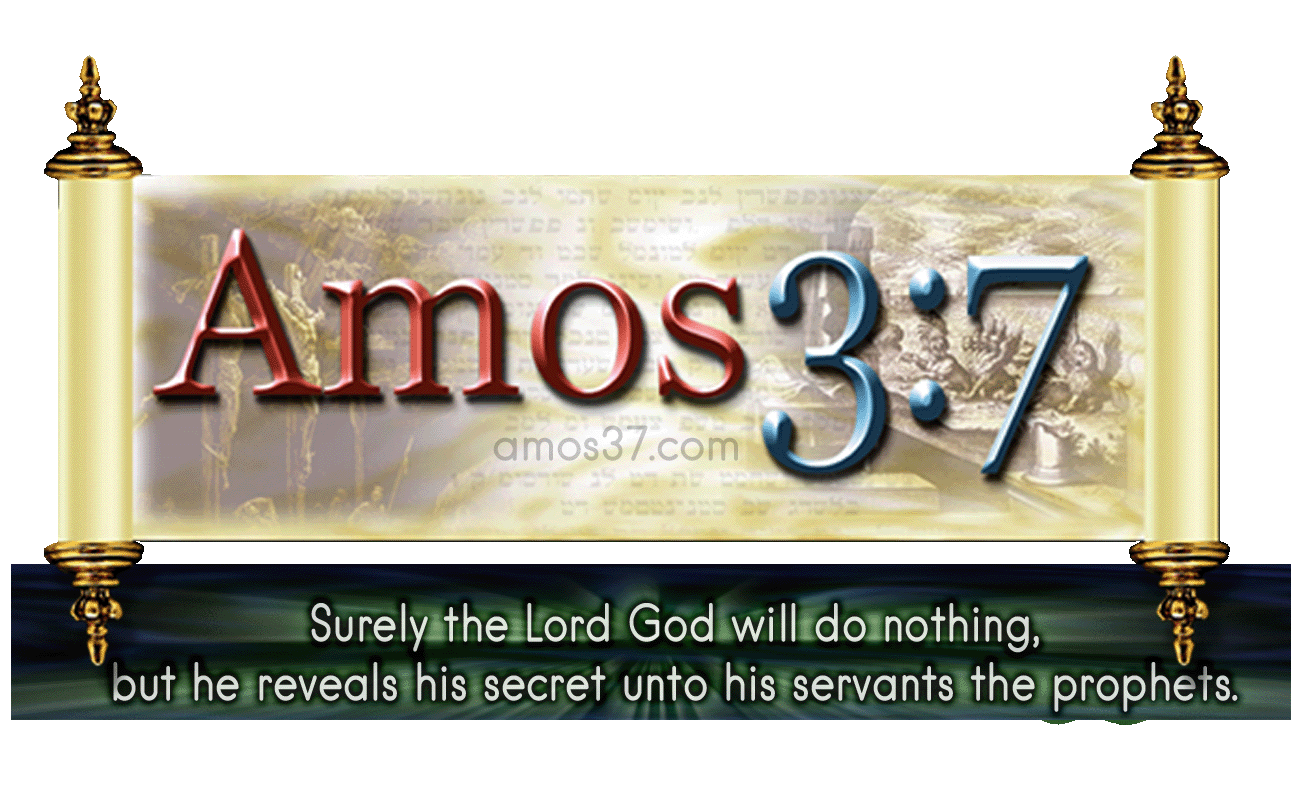
WHAT DOES GOD THINK ABOUT THE CONFISCATION OF THE LAND OF ISRAEL, AND WHO IS THE APPLIE OF GOD’S EYE?
The most critical element of Dispensationalism, in spite of errors in some camps, is where does a Christian stand regarding the confiscation of the land of Israel and its future greater Israel borders. (Trailer available on our homepage).
Reformed Covenant Amillenial Theology is Abandonment of Israel Lite…or cowardice!
In all of this discussion about whether or not it is Israel that is the apple of God’s eye, and my conversation with Dr. Cone, a dramatic revelation has fallen on me, for which I must repent for this glaring omission of perhaps the most important reason why this must be Israel. I can’t believe I missed this.
It must be Israel because the return of the literal Jews to Israel is how God will unveil his glory in the Last Days, but to also prove with the literal fulfillment of Prophecy is Sovereignty over his people and take vengeance for his land. This is the elephant in the room that must demolish the stronghold of Replacement Theology, revisionist biblical history, and all of its masquerades and counterfeit deceptive disguises.
Ezekiel puts it best when he pens why God is going to this is guarantees it:
“Prophesy therefore concerning the land of Israel, and say unto the mountains, and to the hills, to the rivers, and to the valleys, Thus saith the Lord GOD; Behold, I have spoken in my jealousy and in my fury, because ye have borne the shame of the heathen:”
Ezek 36:6
“…These [are] the people of the LORD, and are gone forth out of his land. But I had pity for mine holy name, which the house of Israel had profaned among the heathen, whither they went. ”
Therefore say unto the house of Israel, Thus saith the Lord GOD; I do not [this] for your sakes, O house of Israel, but for mine holy name’s sake, which ye have profaned among the heathen, whither ye went.”
Ezek 36:20-22
“THEN THE NATIONS WILL KNOW THAT I AM THE LORD, DECLARES THE SOVEREIGN LORD!” Ezek 36:23
“And the heathen shall know that I the LORD do sanctify Israel, WHEN my sanctuary shall be in the midst of them for evermore.” Ezek 37:28
BOL main theme is the sovereignty of God. So here is a perfect opportunity to declare it!
And here is more of WHY God is going to do this in the future End Times
” And thou shalt come up against my people of Israel, as a cloud to cover the land; it shall be in the latter days, and I will bring thee against my land, that the heathen may know me, when I shall be sanctified in thee, O Gog, before their eyes.
” Ezek 38:16
“And it shall come to pass at the same time when Gog shall come against the land of Israel, saith the Lord GOD, [that] my fury shall come up in my face. For in my jealousy [and] in the fire of my wrath have I spoken, Surely in that day there shall be a great shaking in the land of Israel;” ezek 38:18-19
Vengeance is mine saith the Lord. Jesus Christ response to poking (striking) a stick in the apple of his eye (Jerusalem…i.e. Zion) will be an act of vengeance against the surrounding nations for plundering his land…not for plundering the church…the church is NOT Zion. If the Church is now Zion, then we could call are Christians Zionists as a synonym. But they are not synonyms. But God will judge those who would dare remove or redefine who he can take vengeance upon. For the most part God has yet to take this vengeance out on and strike those who poked a stick in his eye…it remains unfulfilled or consummated. When it is we will all know it and it will be a sovereign act of a Sovereign God. He is the kinsmen avenger and will be glorified in it. Christ will not sit on the Throne of David until he has avenged the apple of his eye. Some argue that it is the New Jerusalem that is the apple of God’s eye, but is impossible because it is impossible to poke a stick at the New Jerusalem without going to Heaven, and if one could go there, they wouldn’t poke it.
“So will I make my holy name known in the midst of my people Israel; and I will not [let them] pollute my holy name any more: and the heathen shall know that I [am] the LORD, the Holy One in Israel.” EZEK 29:7
It is impossible for the Lord to do this to the Church, so therefore would make it impossible for the “nations to know”.
Finally,
Eze 47:13 ¶ Thus saith the Lord GOD; This [shall be] the border, whereby ye shall inherit the land according to the twelve tribes of Israel: Joseph [shall have two] portions.
Eze 47:14 And ye shall inherit it, one as well as another: [concerning] the which I lifted up mine hand to give it unto your fathers: and this land shall fall unto you for inheritance.
Rev 22:20 He which testifieth these things saith, Surely I come quickly. Amen. Even so, come, Lord Jesus.
Besides theft of sovereignty of a nation, here are more thoughts:
I am going to use the strongest biblical argument and Scripture used by Replacement Theology to revise and redefine the promise of the land to Israel.
Gal 3:28 There is neither Jew nor Greek, there is neither bond nor free, there is neither male nor female: for ye are all one in Christ Jesus.
Here is the remaining match.
Col 3:11 Where there is neither Greek nor Jew, circumcision nor uncircumcision, Barbarian, Scythian, bond [nor] free: but Christ [is] all, and in all.
I have a friend who is Christian brother, he is also therefore, a joint heir in Christ. He has a wife who is the apple of his eye who is also a Christian. I have a wife who is the apple of my eye and also a Christian. Now because in Christ Jesus, there is neither male nor female, all four of us are one in Christ. My friend John and his wife are one flesh because they are married. Karen and I are one flesh because we are married. So on two levels we are one. Furthermore, we would all be the apple of God’s eye right? Therefore, the apple of John’s eye is the apple of my eye, and the apple of my eye is the apple of John’s eye, right? Therefore, John’s wife is the apple of my eye, and my wife should be the apple of John’s eye too, right? WRONG! Of course not! Well this is the tantamount argument, that because Israel is the apple of God’s eye, and the Church is the apple of God’s eye, the church can help itself to the land of Israel, and Israel can help itself to all land, if any, that belongs to the Church. This logic must follow if there is NO distinction between Jew and Gentile, or if there is a distinction it is irrelevant, so long as they are both saved. The promised land of Israel was once, literal, but now is just a type, God’ is geographically neutral and all boundaries are now irrelevant, just like the boundaries between sexes would have to vanish because, after all, we are all on in Christ, and there is neither male nor female, right? Now as to the argument of fulfillment theology. That is that Jews, so long as they are Christians get to share in the promise of the land now transferred to the Church, right? But what this is saying is that the Church now is the apple of God’s eye, but will share its apple with the Jews, i.e., share its wife (apple of the eye) with another man, or worse wife swapping the mutual apples of their eyes? But there is another problem with this sharing the apple. The Church gets most of the apple, while the Jews get a most a sliver or small bite. What a deal for the Jews! Problem with this model is that the land of Israel was and will be TOTALLY divided up to every tribe of Israel, all twelve tribes, right down to the clan as Ezekiel proves. There is only one Scripture in Ezek which offers and land promise to Gentiles, and that is what Israel is commanded to do with “aliens” in the land…they are to have equal citizenship in the land of Israel. It is not clear that the alien would even have to be saved to be treated equally as a citizen in Ezekiel’s prophecy. This is true, but keep in mind, every grain of sand is still Israel. Arabs, or Gentiles could buy property like you buy a house and parcel of land in the U.S., or lease it. We own our property for our home. But we can’t form a separate nation with our address, or secede from the United States, form our own currency, arm ourselves with tanks and missiles and form our own army against the local police, county, state, or country. And who decides how much of the apple that now belongs to the Church will be rationed out to the Jews? The Church? But why the Church when Jesus Christ, through Ezekiel already surveyed the land and divided it up according to His Sovereign will? And since there is now no distinction between male and female in Christ, either can be an elder in the church right? Most Reformed and Replacement adherents want their cake and eat it.
How is it that if we are no longer servants in Christ but Jesus Christ calls us friends because we now know what the Lord doeth, that these Replacement Theology friends don’t know what the Lord doeth regarding Israel?
If Rick Warren, The Southern Baptist Church, and a host of other pastors who have promoted Rick Warren, had exposed and marked Obama instead of blessing him at the Inaugural, 25 million Evangelicals might not have voted for him in this election, dooming us!
Obama has abandoned Israel. The Church has abandoned Israel. America has become a death star. But the bright and Morning Star will become the Kinsmen Avenger. The stage is now set for ALL of the nations to surround Israel. Jesus Christ, Commander of the Host and Armies, will fight alone on behalf of Israel destroying the satanically indwelt Antichrist (Habakkuk 3:13, 2; 2 Thessalonians 2:8)
Shalom,
James Sundquist
Director
http://www.perfectpeaceplan.com